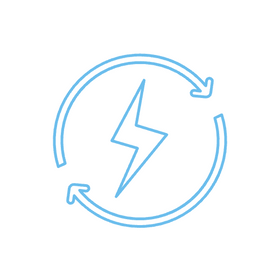Solar Energy Kits Buyer's Guide
Solar energy has become increasingly popular in recent years as a sustainable and cost-effective alternative to traditional energy sources. With a wide variety of solar panel and solar panel related products available on the market, it can be challenging to determine which products are best for your needs. This buyer's guide aims to provide an overview of solar panel and solar panel related products and their respective uses, helping you make an informed decision when purchasing solar products.
Solar Panels:
Solar panels are the foundation of any solar energy system, as they convert sunlight into electricity. When purchasing solar panels, consider the following factors:
- Wattage: The wattage of a solar panel determines how much energy it can produce. The wattage of a solar panel is measured in watts peak (Wp) and varies depending on the panel's size, efficiency, and technology. Higher wattage solar panels produce more energy per panel, making them ideal for larger solar panel systems or homes with high energy needs. For instance, a 360W panel would produce 360 watts of power at peak performance.
- Efficiency: The efficiency of a solar panel measures how much of the sunlight it can convert into electricity. Efficiency is calculated by dividing the panel's wattage by its surface area in square meters. Higher efficiency panels are more expensive but can generate more power with less space. Efficient solar panels are ideal for homes with limited roof space or areas with lower sunlight, as they can produce more power in a smaller area. Typically, the efficiency of solar panels ranges from 15% to 25%.
When choosing a solar panel for your home, consider the following factors based on your intended use:
- Grid-tied systems: For grid-tied systems, where the solar panel system is connected to the utility grid, you should aim for high wattage solar panels with medium efficiency. High wattage solar panels will help generate more power to offset your energy consumption from the grid, while medium efficiency panels are more cost-effective and produce sufficient power.
- Off-grid systems: For off-grid systems, where the solar panel system is not connected to the utility grid, you should aim for high wattage and high-efficiency solar panels. These panels will help you generate enough power to meet your energy needs without relying on the utility grid.
- Portable systems: For portable solar panel systems, such as those used for camping, hiking, or outdoor activities, you should aim for low wattage and compact solar panels. Low wattage solar panels are lighter and easier to carry around, while compact panels are more convenient to pack and transport
Solar panels are the foundation of any solar energy system, as they convert sunlight into electricity. When purchasing solar panels, consider the following factors:
Solar Inverters:
Solar inverters convert the DC (direct current) electricity produced by solar panels into AC (alternating current) electricity used by most appliances. When purchasing solar inverters, consider the following factors:
- Type: There are two types of solar inverters - string inverters and micro-inverters. String inverters are cheaper but can be less efficient, while micro-inverters are more expensive but can improve performance.
- Power output: The power output of a solar inverter determines how much electricity it can convert. Look for a solar inverter with an appropriate power output for your solar panel system.
- Warranty: A solar inverter warranty typically covers manufacturing defects and performance. Look for a warranty of at least 10 years.
Solar Chargers:
Solar chargers are portable solar panels that can be used to charge electronic devices like phones and tablets. When purchasing solar chargers, consider the following factors:
- Wattage: The wattage of a solar charger determines how much energy it can produce. Consider the energy needs of your electronic devices when choosing a solar charger with an appropriate wattage.
- Portability: Solar chargers are meant to be portable, so consider their size and weight when choosing a solar charger that is easy to carry around.
- Compatibility: Solar chargers may not be compatible with all electronic devices. Make sure to check the compatibility of your devices before purchasing a solar charger.
Solar Batteries:
Solar batteries store the energy produced by solar panels for use when sunlight is not available. When purchasing solar batteries, consider the following factors:
- Capacity: The capacity of a solar battery determines how much energy it can store. Consider your energy needs and the size of your solar panel system when choosing a solar battery with an appropriate capacity.
- Depth of discharge (DOD): DOD measures how much of the battery's capacity can be used before needing to be recharged. Look for a solar battery with a high DOD to maximize the use of stored energy.
- Warranty: A solar battery warranty typically covers manufacturing defects and performance. Look for a warranty of at least 10 years.
Solar panel and solar panel related products are a great investment for anyone interested in sustainable and cost-effective energy solutions. When purchasing these products, consider the factors outlined above to ensure that you are getting the best products for your needs. Remember to always work with a reputable solar installer to ensure a professional installation and to maximize your solar panel system's performance.




